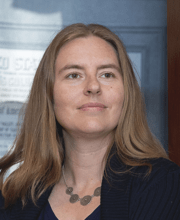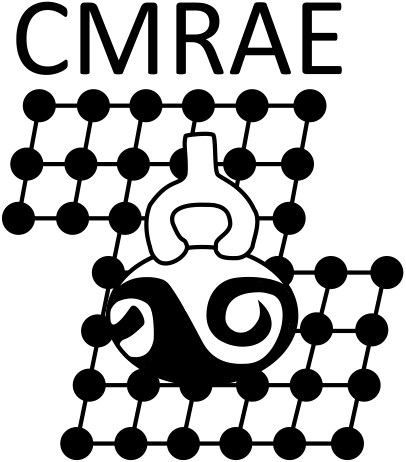
Harvard University
Department of Anthropology
Peabody Museum 570
Cambridge, MA 02138
warinner@fas.harvard.edu | (617) 495-1279
Profile
Christina Warinner is an Associate Professor in the Department of Anthropology and the Sally Starling Seaver Associate Professor at the Radcliffe Institute. She is also a group leader in the Department of Archaeogenetic at the Max Planck Institute for the Science of Human History affiliated with the faculty of biological sciences at the Friedrich Schiller University in Jena, Germany.
Warinner specializes in bimolecular archaeology, with emphasis on reconstructing the prehistory of human foods and the evolution of the microbiome. She is known for her pioneering work in ancient DNA and proteins research, which has contributed significant insights into prehistoric human health, the ancestral human microbiome, the origins of dairying, and past human population history. In 2014, she published the first detailed metagenomic and metaproteomic characterization of the ancient human oral microbiome, and in 2015, she published a seminal study on the identification of milk proteins in ancient dental calculus and the reconstruction of prehistoric European dairying practices. In the same year, she was also part of a research team that published the first South American hunter-gatherer gut microbiomes and identified Treponema as a key missing ancestral microbe in the gut microbiome of industrialized societies. later, she demonstrated that full mitochondrial genomes could be recovered from dental calculus, opening new opportunities for less destructive methods of collaborative paleogenomics research with Native American tribes and communities. In 2016, she and her colleagues reconstructed the early population history of the Himalayas and published the first complete genomes of ancient East Asian steppe. Her work has additionally contributed to identifying the cause of the 1545 Mexican cocoliztli epidemic and revealing the roles of women in medieval book production. She is currently leading a large multidisciplinary project in Mongolia combining archaeology, ethnography, microbiology, microbiome sciences to understand the origins of dairying and the rich and complex history of human cultural and biological adaptations to novel foods.
Selected Publications
M. Klapper, A. Hübner, A. Ibrahim, M. Borry, S. Chowdhury, J. Frankenberg, V. Hansch, R. Herbs, H. Suma, M. Velsko, I. Wasmuth, J. Fellows Yates, S. Zhang, WK. Al-Jammal, EV. Bratobanov, HM. Dash, T. Horch, C. Hertweck, MR. Gonzalez Morales, LG. Strauß, I. Vilotijevic, C. Warinner, P. Stallforth (2023). Natural products from reconstructed bacterial genomes of the Middle and Upper Paleolithic. Science.
JH. Lee, BK. Miller, J. Bayarsaikhan, E. Johannesson, A. Ventresca Miller, C. Warinner, C. Jeong (2023). Genetic population structure of the Xiongnu Empire at imperial and local scales. Science Advances 9 (15).
C. Warinner (2022). An Archaeology of Microbes. Journal of Anthropological Research 108.
C. Warinner, K. Richter, M. Collins (2022). Paleoproteomics. Chemical Reviews. DOI: 10.1021.
Scott A, Reinhold S, Hermes T, Kalmykov AA, Belinskiy A, Buzhilova A, Berezina N, Kantorovich AR, Maslov VE, Guliyev F, Lyonnet B, Gasimov P, Jalilov B, Eminli J, Iskandarov E, Hammer E, Nugent S, Hagan R, Meander K, Onkamo P, Nordqvist K, Shishlina N, Kaverzneva E, Korolev A, Khokhlov AA, Smolyaninov RV, Sharapova SV, Krause R, Karapetian M, Stolarczyk E, Krause J, Hansen S, Haak W, Warinner C (2022). Emergence and intensification of dairying in the Caucasus and Eurasian steppes. Nature Ecology and Evolution. doi: 10.1038/s41559-022-01701-6.

